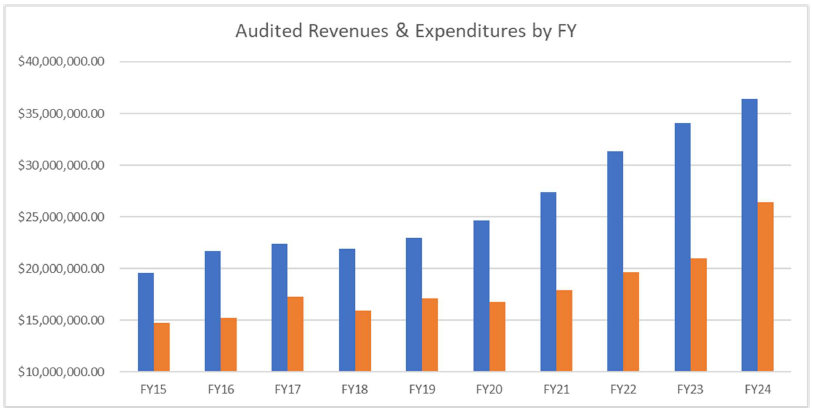Medicaid expansion remains unlikely as program prepares to unwind
Published 9:00 am Tuesday, January 24, 2023

- Georgia Capitol.
ATLANTA — Medicaid expansion will likely be a debated topic in health care discussions among Georgia legislators this session.
As states prepare to unwind the expanded Medicaid program granted in 2020 because of the COVID-19 pandemic, an expansion Republicans argue has cost the state billions, Democrat leaders are continuing their years-long advocacy for Medicaid expansion.
Trending
House Minority Leader James Beverly, a Democrat, has filed two bills — one to expand Medicaid eligibility to 138% of the federal poverty level to cover nearly 500,000 Georgians, and another to cover those who will be impacted by the unwinding of Medicaid expansion in the state.
Expanding Medicaid, he implied, would lower cost increases of hospitals and providers while providing more health care to those in need.
“If we expand Medicaid right now, we go from around 72% federal funding to 90%. Also, those people will come onto the rolls right now,” Beverly said at a Jan. 17 joint appropriations meeting of the House and Senate. “And that would save a lot of money with the hiring that you have to do to ramp up the unwinding.”
In April, Medicaid eligibility must be redetermined for the 2.7 million Georgians who currently receive Medicaid or PeachCare for Kids coverage.
In response to the COVID-19 pandemic, Congress passed the Families First Coronavirus Response Act in March 2020, giving states a temporary 6.2% federal funding increase if they ensured continuous coverage through the end of the month in which a federally declared public health emergency (PHE) expires. Before the Act was passed, states reevaluated Medicaid eligibility every year. The public health emergency, which has been extended several times by Pres. Joe Biden, expires April 11.
Gov. Brian Kemp recently cited spending concerns as a primary reason for not wanting to expand Medicaid. In a letter to Biden, signed by more than 20 other governors, Kemp urged Biden to end the public health emergency.
Trending
“The PHE is negatively affecting states, primarily by artificially growing our population covered under Medicaid (both traditional and expanded populations), regardless of whether individuals continue to be eligible under the program, the letter states. “While the enhanced federal match provides some assistance to blunt the increasing costs due to higher enrollment numbers in our Medicaid programs, states are required to increase our non-federal match to adequately cover all enrollees and cannot disenroll members from the program unless they do so voluntarily.”
Since the beginning of the pandemic, states have added 20 million individuals to the Medicaid rolls (an increase of 30%), and those numbers continue to climb as the PHE is extended every 90 days, the December 2022 letter states.
Caylee Noggle, commissioner of the Georgia Department of Public Health, which maintains oversight of the state’s Medicaid program, said in FY 20, before the start of the public health emergency, the state had approximately 2.1 million Medicaid members. Since then, the number of Medicaid recipients in Georgia has grown to 2.7 million, representing a growth of over 570,000 members or 25% growth in Medicaid enrollment since the start of the pandemic.
“If we look at what we would have projected in growth by the department at the start of the pandemic without considering the public health emergency, we would have projected over these past three years about 5% growth in Medicaid enrollment as opposed to the 25 (percent),” Noggle said, attributing much of the growth to the temporarily expanded program under COVID. “We know that that cost difference to the program is about $3 billion.”
The nearly 570,000 Georgians added to the Medicaid program under the COVID program will likely be ineligible for Medicaid and have to transition to private insurance.
Candice Broce, director of the Georgia Division of Family and Children Services, said the departments have ramped up staff to accommodate the impending Medicaid unwinding, which is expected to increase employee caseloads by more than 200% — from roughly 114 cases per month, per worker — to a projected 353 cases per month, per worker. All DFCS offices will offer at least one day per week of in-person operations for DFCS clients needing Medicaid assistance.
Broce said while many providers regularly complain about late payments, fewer providers are receptive of or accept of Medicaid coverage, which she said could help prevent children from entering the foster care system.
“If we can address a child’s needs earlier and more effectively, we can avoid foster care altogether. And if we cannot, we will have more high-quality loving homes for our youth with better Medicaid coverage,” she said. “If more families can access the Georgia safety net for medically, mentally, developmentally and behaviorally complex children, fewer will enter foster care and more will be empowered to gracefully age into adulthood.”
Republican state Rep. Jesse Petrea, chair of the Human Relations & Aging Committee, inferred his lack of support for widening the Medicaid program.
“I’m far more interested in the discussion about all those populations that Medicaid was originally created for,” Petrea said. “About 57% of our Medicaid budget goes to 25% of our population that are the aged, blind and disabled.”
Petrea said the biggest challenge is finding aid for those with behavioral challenges and lack of behavioral therapists. He said a rate reimbursement study for providers will be invaluable in increasing the provider network for health care.
Georgia Department of Behavioral Health and Developmental Disabilities Commissioner Kevin Tanner said some rates haven’t been revisited in 17 years. A rate study was commissioned by the Mental Health Parity Act (HB 1013) and was approved by legislators last legislative session.
“We’ve gotten some notices from those (providers that) are no longer going to provide that resource to us if we don’t have those rates,” Tanner said. “It’s looking like it would require about a 40% increase in those rates. If we don’t have providers and if we’re not able to cultivate providers in the workforce to do the job, none of us are going to be successful in what we’re trying to accomplish. … On the Behavioral Health Reform Commission, what we saw over the last three years, we have a lot of providers in Georgia that will not take Medicaid. The General Assembly is going to have to take a serious look at those rate studies because it’s going to be necessary.”
According Georgia Medicaid, eligible recipients must have low income and either be pregnant, a child, 65 and older, have a disability or need nursing home care. Generally, however, household incomes at or below 133% ($18,075) of the federal poverty level are likely to be eligible for Medicaid. Figures increase with the number of children and household size.
Expanding Medicaid as 38 other states have done, in general, covers more low-income Americans up to age 64 by expanding to incomes up to 138% of the federal poverty level. The federal government would increase its share of the costs to 90% and the states would bear a 10% cost.
Georgia DHS is encouraging Medicaid recipients to check their Gateway account online to make sure that their information is up-to-date as the re-evaluation period begins in the coming months.




